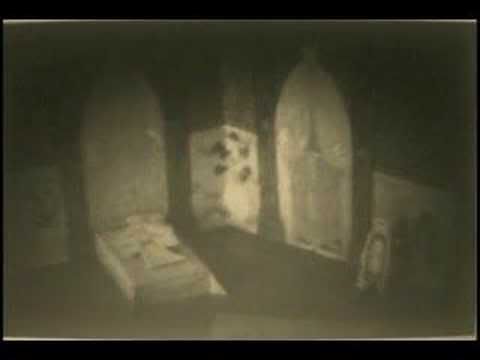If you are using Chrome, click the red hand button at the top right of the screen:

Then select: Don't run on pages on this site
If you do it correctly, the red hand will turn to green and you will no longer see this message.

I would rather stay with the term vampire as the unique accepted modern form of the word.
First we know that this word was imported through German and then French intermediary in the English language.
There is no doubt about that.It is not an ancient Anglo-Saxon, Roman or Celtic word.It appeared for the firs time in English literature and then in the English speaking world as a neologism in the Romantic Dark era (XVII-th - XIX-th century).
Before this even if we meet some spectral creatures with the appearance of the vampire in the "gothic" English literature they are not called with the term"vampire" or anything close to that.This is the reason why my submission of this poem to the database was rejected at first because it doesn`t had this word.
Later the VR procurators accepted it when it was submitted by another member but this is another story.
So where the word is coming from?
It`s coming from the German Vampir who first appeared in the German literature (and during XVIIIth century was at a very large circulation in the German Romanticism - Burger, Goethe, Hoffmann) as "Der Vampir" with an "i" in the poem with the same name of Heinrich August Ossenfelder published in 1748.
Here is the text in German:
http://web.uvic.ca/geru/487/ossenfelder.html
There is also a translation in Eng on our VR database.
Yes indeed: the poem was written by Ossenfelder right after the terrible vampire wave of fear that spread from Transilvania and Serbia in all the Austro-Hungarian Empire.
In fact Ossenfelder present it at a adaptation of a folklore song or poem or even of a true story.
We also know that Ossenfelder wrote the poem earlier and wrote it in Vienna or in Hungaria during his trip in the Austro-Hungarian Empire.
After all the term is not of German origin either.And is possible that it could be of Balkanic origin.
Some say it was an ancient aryan term (or indo-european to not hurt the deelings of anyone ), some say it has a Slavic origin.
What is sure is the fact that Ossenfelder took it from someone who was Hungarian or Serbian(slav) or Romanian speaking person.
either one of these language writes it with an "i" for a simple motive: these people in their history had only two sets of letters they could write in: Latin language(for the Hungarian chancellory) or chirilic for slavs and for Romanians too since Romanians were written at that data with chirilic characters.
In both the term Vampire is written with and "i" (Latin does not have the Greek character "y" and in chirilic the letter "i" is written with a reverted "N").
WE also know that Byron as Coleridge were frequenting the nobility literary evenings of that time where reading aloud for all the audience from the German "ghosts" stories was one of the main attractions.
It`s obviously that Byron took the term inspired by one of this public lectures.
He was written it differently the the German authors because one of these motives:
- to place it closely to the Greek civillisation (Y is a Greek letter and we know that Byron was an admirer of Greece - he even died protecting one of the little town of Greece)
- to make it sound more Saxon and to give him an ancient mystic aura;
- to reproduce also the length of the "ee" and the accent in the word because the word was imported from another language;
- simply to make it more exotic,we know that the Romantic period writers were very attracted by exotic things and had the tendency to make the things appear in a foreign aura of a sort;
- to create in the reader`s mind an image related to the world "pyre".
The argument stands even if the true author of the poem was the close friend, lover and confident of Byron: dr. Polidori.
No author in the XIxth century from what I know(this can be studied further - I might be wrong) used the word in the form of "vampyre"(in fact I think in the XIXth century nobody followed this kind of speling in ANY literature) so it was a Byron kind of writing it.
The argument of an older spelling as "vampyre" falls, so I guess I presented enough proves that there are neither two words, or two acceptions of the term neither the form of "vampyre" can be correct.
So in my opinion the form "vampire" should be the only one used in modern now-days speaking English language.
I hope all of you will agree with me or present stronger arguments.
Dragonrouge
COMMENTS
Interesting argument...
I'm all for using the word 'vampyre' to describe the bonfire that vampires are burned upon - lol!
Hahaah!
Isis you are a very fast reader! This honors me.
Thank you!
good work, DR!
COMMENTS
-